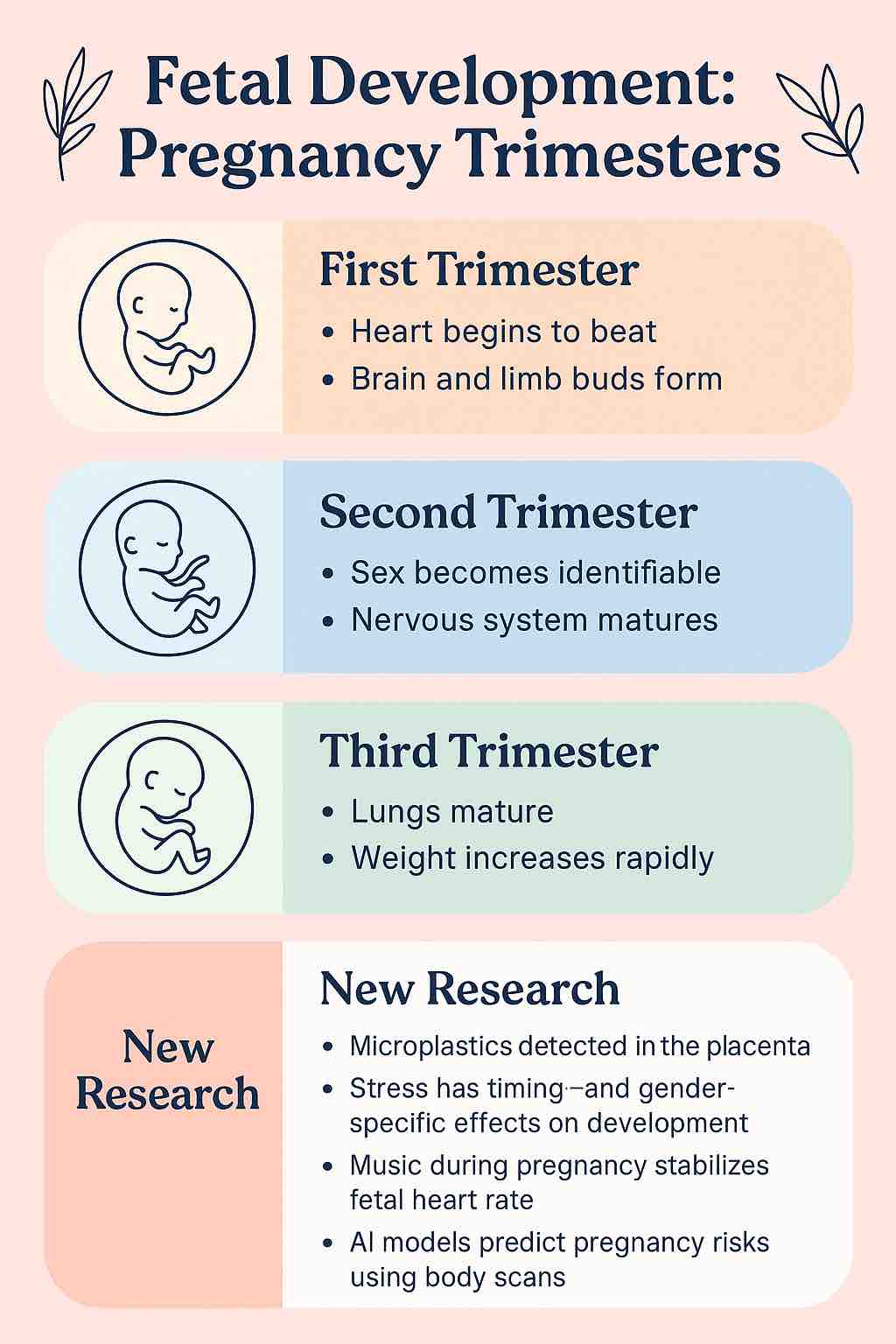
Introduction:
Welcome to an enlightening exploration where two worlds converge – the transformative journey of pregnancy and the intricate realm of pre-existing mental health conditions. As we embark on this path, it’s essential to recognize the unique challenges and complexities faced by expectant mothers navigating this dual landscape.
Crafted with care by an AI, this post draws from reputable sources like the CDC and MGH Center for Women’s Mental Health, offering you a tapestry of information, insights, and practical advice. It’s a resource woven with understanding and empathy, aiming to shed light on the nuances of managing mental health during pregnancy.
Here, you’ll find a blend of factual data and compassionate guidance. We delve into the impact of mental health conditions on pregnancy, discuss treatment options, and offer strategies for self-care and support. Our goal is to empower you with knowledge, dispel myths, and provide a beacon of support through your journey.
However, it’s crucial to note that while this post is meticulously researched, it’s not a substitute for professional medical advice. It’s a starting point, a conversation starter, and a companion in your quest for understanding and managing mental health during pregnancy.
As you read on, remember that every journey is personal and unique. Whether you’re experiencing this yourself or supporting someone who is, this guide aims to be a valuable ally, providing clarity and confidence in the face of challenges.
Section 2: Understanding Mental Health in Pregnancy
Pregnancy is a period of significant change – physically, emotionally, and psychologically. For women with pre-existing mental health conditions, these changes can be more pronounced and complex. It’s a time when mental health can influence and be influenced by pregnancy in various ways.
The Psychological Landscape of Pregnancy: Pregnancy can be a time of heightened emotions. For some, it can bring joy and excitement, but for others, it might amplify existing mental health issues. Hormonal fluctuations can impact mood and emotional well-being, potentially intensifying symptoms of pre-existing conditions like depression or anxiety.
Impact of Pre-existing Conditions on Pregnancy: Mental health conditions can affect pregnancy and childbirth. For instance, depression or anxiety might lead to challenges in self-care, affecting nutritional intake or adherence to prenatal appointments. In some cases, mental health issues might increase the risk of pregnancy-related complications.
The Bidirectional Relationship: It’s important to understand that this relationship is bidirectional – pregnancy can affect mental health just as mental health can impact pregnancy outcomes. Stress and anxiety related to pregnancy, fears about childbirth, or concerns about parenting can exacerbate pre-existing mental health conditions.
Recognizing the Signs: It’s crucial for expectant mothers and their support systems to recognize changes in mental health. Symptoms might include prolonged sadness, excessive worry, changes in eating or sleeping patterns, or a loss of interest in activities previously enjoyed.
This section emphasizes the dynamic interplay between pregnancy and pre-existing mental health conditions, highlighting the importance of awareness and understanding. The next section will delve into the common pre-existing mental health conditions and their specific challenges during pregnancy.
Section 3: Common Pre-existing Mental Health Conditions and Pregnancy
When discussing pre-existing mental health conditions in the context of pregnancy, it’s vital to recognize the most common disorders and understand how they might interact with the experience of expecting a child.
Depression: A prevalent condition, depression during pregnancy can manifest as persistent sadness, loss of interest in activities, or feelings of worthlessness. It’s crucial to monitor and manage depression, as it can affect both the mother’s and baby’s health, potentially leading to complications like preterm birth or low birth weight.
Anxiety Disorders: Anxiety can be heightened during pregnancy due to hormonal changes and the stress of impending parenthood. Symptoms may include excessive worrying, sleep disturbances, and physical manifestations like palpitations. Managing anxiety is key to ensuring a healthy pregnancy.
Bipolar Disorder: Pregnancy can complicate bipolar disorder, with the potential for mood swings to become more extreme. Careful monitoring and treatment adjustments may be necessary, as some medications commonly used for bipolar disorder can pose risks during pregnancy.
Other Conditions: Conditions like schizophrenia or obsessive-compulsive disorder (OCD) also present unique challenges. Pregnant women with these conditions require close monitoring and often a tailored approach to treatment.
The Importance of Treatment Continuity: For all these conditions, maintaining treatment during pregnancy is crucial. This may include therapy, medication, or a combination of both. It’s essential to work closely with healthcare providers to balance the benefits of treatment with any potential risks to the baby.
In this section, the focus is on the specific challenges and management strategies for common pre-existing mental health conditions during pregnancy. The following section will explore the risks and complications associated with these conditions in the context of pregnancy.
Section 4: Risks and Complications in Managing Mental Health Conditions During Pregnancy
In this section, we delve into the risks and complications that can arise when managing pre-existing mental health conditions during pregnancy. Understanding these risks is crucial for expecting mothers and their healthcare providers to navigate this delicate period with informed care and caution.
Effects on Pregnancy and Childbirth:
- Mental health conditions, if not properly managed, can impact pregnancy outcomes. For instance, uncontrolled depression or anxiety may increase the risk of preterm labor, low birth weight, and postpartum depression.
- Stress and anxiety can contribute to high blood pressure and heart rate, potentially affecting fetal development.
Medication Considerations:
- The use of certain psychiatric medications during pregnancy poses a complex dilemma. While some medications are essential for managing mental health, they may carry risks to the fetus, such as congenital anomalies or withdrawal symptoms after birth.
- Close collaboration with healthcare providers is essential to balance the benefits of medication against potential risks. This may involve adjusting dosages or switching to safer alternatives.
Impact on Maternal Health:
- Mental health conditions can also have a significant impact on the mother’s overall health. For example, severe anxiety or depression might lead to inadequate self-care, poor nutrition, and disrupted sleep, which are vital for a healthy pregnancy.
- The stress of managing a mental health condition can exacerbate other pregnancy-related issues, such as gestational diabetes or hypertension.
Preparing for Postpartum:
- It’s important to plan for the postpartum period, as women with pre-existing mental health conditions are at a higher risk for postpartum depression or anxiety.
- Establishing a support system, continuing treatment, and regular check-ins with healthcare professionals can aid in a smoother transition to motherhood.
In this section, we’ve explored the potential risks and complications associated with managing mental health conditions during pregnancy. The next section will discuss treatment challenges and considerations, providing guidance on navigating these complex decisions.
Section 5: Treatment Challenges and Considerations During Pregnancy
Navigating treatment for pre-existing mental health conditions during pregnancy is a complex endeavor. This section aims to shed light on the challenges and considerations involved in ensuring both maternal and fetal well-being.
Balancing Medication and Pregnancy:
- The primary challenge lies in balancing the need for medication against potential risks to the fetus. Antidepressants, mood stabilizers, and antipsychotics each come with their unique considerations.
- Some medications may carry risks of birth defects or developmental issues, necessitating a thorough risk-benefit analysis by healthcare providers.
Non-Pharmacological Approaches:
- Where possible, non-pharmacological treatments such as therapy, counseling, and lifestyle modifications are considered safer alternatives.
- Techniques like cognitive-behavioral therapy, mindfulness, and stress-reduction exercises can be beneficial in managing symptoms without medication.
Monitoring and Adjusting Treatments:
- Ongoing monitoring throughout pregnancy is crucial. This may include more frequent check-ups, therapy sessions, or adjustments in medication dosages.
- Healthcare providers often work closely with pregnant patients to tailor treatments to their changing needs.
Informed Decision-Making:
- Informed decision-making is key. This involves understanding the potential impacts of both treating and not treating a condition during pregnancy.
- Healthcare providers should provide clear, comprehensive information to expectant mothers, allowing them to make informed choices about their treatment.
In this section, we’ve navigated the delicate balance of treatment options for managing mental health during pregnancy. The upcoming section will focus on the importance of support systems and resources available for pregnant women with pre-existing mental health conditions.
Section 6: The Importance of Support Systems and Resources
Navigating pregnancy with a pre-existing mental health condition is not a journey to be walked alone. This section underscores the vital role of support systems and accessible resources in providing holistic care.
Building a Robust Support System:
- Emotional and practical support from family, friends, and partners is invaluable. Encouragement and understanding from loved ones can significantly alleviate stress and anxiety.
- Professional support, including therapists, psychiatrists, and support groups, provides a safe space for addressing specific mental health concerns.
Utilizing Community Resources:
- Community resources such as local mental health centers, online forums, and helplines (like Postpartum Support International and the National Alliance on Mental Illness) offer additional layers of support.
- These resources can provide information, coping strategies, and connect expectant mothers to others experiencing similar challenges.
Leveraging Digital Tools and Apps:
- Digital tools and apps designed for mental health can offer convenient access to therapy, tracking mood changes, and stress management techniques.
- Apps specifically designed for pregnant women can help monitor both physical health and mental well-being.
Educational Resources and Workshops:
- Participating in educational workshops and seminars on mental health during pregnancy can empower women with knowledge and strategies for managing their condition.
- Healthcare providers often have recommendations for reputable workshops and seminars.
In this section, we’ve explored the importance of a strong support network and the availability of various resources for pregnant women managing mental health conditions. The next section will delve into self-care strategies and lifestyle adjustments to further support mental health during pregnancy.
Section 7: Healthy Practices and Coping Strategies
Maintaining mental wellness during pregnancy, especially with pre-existing conditions, calls for a proactive approach towards self-care and coping strategies. This section offers practical advice on incorporating healthy practices into daily routines.
Prioritizing Mental and Emotional Well-being:
- Regular mental health check-ins are crucial. This can be facilitated through journaling, meditation, or therapy sessions to understand and manage emotions effectively.
- Engaging in activities that promote relaxation and stress relief, such as yoga, light exercise (as advised by a healthcare provider), or creative hobbies, can be beneficial.
Nutrition and Physical Health:
- A balanced diet, rich in nutrients, supports both mental and physical health during pregnancy. Inclusion of foods high in omega-3 fatty acids, folic acid, and iron can be particularly beneficial.
- Adequate hydration and regular, gentle physical activity are essential for maintaining overall health.
Sleep and Rest:
- Prioritizing sleep is vital. Establishing a regular sleep routine and creating a comfortable sleeping environment can help combat insomnia and fatigue.
- Short, restful breaks throughout the day can help manage energy levels and reduce stress.
Building Resilience Through Education and Preparation:
- Educating oneself about the changes during pregnancy and postpartum can alleviate anxiety and build confidence.
- Antenatal classes and parenting workshops can provide valuable knowledge and skills for managing the transition to parenthood.
Fostering Positive Social Connections:
- Maintaining a social network, even if it’s virtual, can provide emotional support and reduce feelings of isolation.
- Connecting with other expectant or new mothers facing similar challenges can create a sense of community and shared understanding.
In this section, we’ve outlined key strategies for self-care and coping to support mental health during pregnancy. The next section will focus on the transition to the postpartum period and the continued management of mental health conditions.
Section 8: Navigating the Postpartum Period with Pre-existing Mental Health Conditions
The transition into the postpartum period is a critical time for new mothers, particularly for those with pre-existing mental health conditions. This section focuses on the importance of continued care and support during this transformative phase.
Continued Mental Health Monitoring:
- Postpartum is often a vulnerable period for mental health. Continuing regular check-ins with mental health professionals is crucial.
- Awareness of postpartum depression and anxiety symptoms is essential, as they can sometimes present differently than typical depression or anxiety.
Adjusting Treatment Post-Delivery:
- Medication and treatment plans may need adjustments after childbirth, especially if breastfeeding. Consultation with healthcare providers is essential for safely managing medications.
- Non-pharmacological treatments like therapy should continue to provide emotional support and coping mechanisms.
Importance of Self-Care and Rest:
- Prioritizing self-care is crucial during the postpartum period. Ensuring adequate rest, nutrition, and hydration is vital for recovery.
- Allocating time for personal care and relaxation can help manage stress and promote overall well-being.
Seeking and Accepting Support:
- Accepting help from family, friends, or professional services for childcare and household tasks can be invaluable.
- Support groups for new mothers, especially those dealing with mental health issues, can offer comfort and advice from those in similar situations.
Planning for the Future:
- Discuss future family planning and mental health management with healthcare providers.
- Reflect on the pregnancy and postpartum experience to inform future healthcare decisions and personal wellbeing strategies.
In this section, we’ve highlighted the crucial aspects of managing mental health during the postpartum period. The concluding section will provide a summary and final thoughts on navigating pregnancy with pre-existing mental health conditions.
Section 9: Conclusion and Empowering Messages
As we draw this comprehensive guide to a close, let’s reflect on the journey we’ve navigated together. Managing pre-existing mental health conditions during pregnancy and postpartum is a path marked by unique challenges, but also profound resilience and strength.
Empowerment Through Knowledge and Support:
- Remember, knowledge is power. Understanding your mental health condition, the impacts on pregnancy, and the ways to manage it effectively are crucial steps towards empowerment.
- Equally important is the support network you build around yourself – healthcare professionals, loved ones, and community resources can be pillars of strength.
The Journey of Motherhood and Mental Health:
- Every mother’s journey is unique. Embrace your path with confidence, knowing that you are not alone in this experience. There are countless women who tread this path before you, with their own stories of courage and perseverance.
- Your mental health is as important as your physical health. Prioritizing both ensures a healthier and happier journey into motherhood.
A Call to Seek Help:
- Do not hesitate to seek help when needed. There is no shame in asking for support – it’s a sign of strength and self-awareness.
- Continue to work closely with your healthcare providers and stay informed about your health and treatment options.
Final Thoughts:
- As you embark on or continue your journey through pregnancy and into motherhood, remember to treat yourself with kindness, patience, and compassion.
- You are embarking on one of the most challenging yet rewarding journeys. With the right support and care, you can navigate this path successfully.
In conclusion, this guide aims to inform, empower, and support expectant mothers managing pre-existing mental health conditions. We hope it serves as a valuable resource in your journey towards a healthy pregnancy and a fulfilling motherhood experience. Remember, you’re not alone, and help is always available.
FAQs
- Can pregnancy worsen pre-existing mental health conditions?
- Pregnancy can sometimes exacerbate pre-existing mental health conditions due to hormonal changes and increased stress. It’s important to monitor mental health closely during pregnancy.
- Is it safe to continue my mental health medications during pregnancy?
- This depends on the specific medication. Some are safe, while others may pose risks to the fetus. Always consult with your healthcare provider for personalized advice.
- How can I manage anxiety naturally during pregnancy?
- Techniques like mindfulness, meditation, and light exercise can be helpful. Also, maintaining a balanced diet and getting adequate sleep are crucial.
- Are there any risks to my baby if I have a mental health condition?
- Some mental health conditions, if not properly managed, can increase risks such as preterm birth or low birth weight. Managing your mental health effectively is key.
- What should I do if I feel my mental health worsening during pregnancy?
- Contact your healthcare provider immediately. They can adjust your treatment plan and provide additional support.
- Can stress during pregnancy affect my baby?
- High stress levels can impact fetal development and increase the risk of complications. Finding effective stress management techniques is important.
- What are signs of postpartum depression?
- Signs include prolonged sadness, loss of interest in activities, feelings of hopelessness, and difficulty bonding with the baby.
- How can my partner or family support me during this time?
- They can offer emotional support, help with household tasks, and encourage you to seek professional help if needed.
- Will my mental health condition affect my ability to breastfeed?
- Not necessarily. However, some medications may not be recommended during breastfeeding. Consult with your healthcare provider for guidance.
- What resources are available for pregnant women with mental health conditions?
- Resources include support groups, counseling services, and helplines like Postpartum Support International and the National Alliance on Mental Illness.
Blog Tags: Pregnancy Mental Health, Managing Mental Health, Pre-existing Conditions, Antenatal Care, Postpartum Support, Stress Management, Maternal Wellness, Emotional Wellbeing, Pregnancy Journey, Mental Health Awareness














